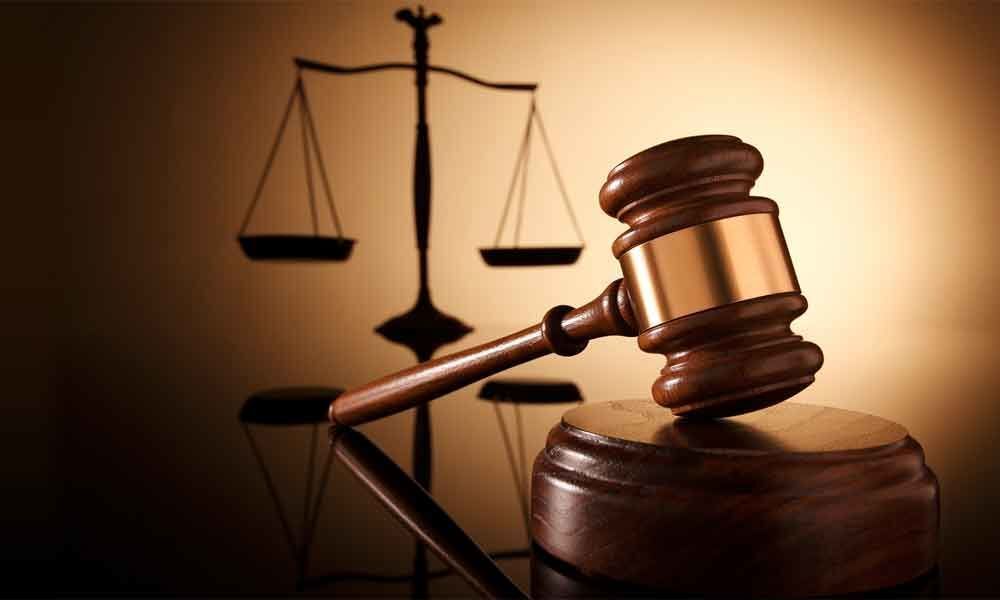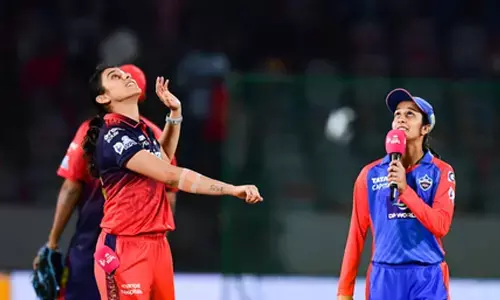Ram, Ram to mediation: Ayodhya issue back to square one!

With the three-member apex court appointed mediation panel washing of its hands on the issue of construction of Lord Ram Temple in Ayodhya by mutual consent, the decades old contentious legal issue has finally come back to the Supreme Court.
With the three-member apex court appointed mediation panel washing of its hands on the issue of construction of Lord Ram Temple in Ayodhya by mutual consent, the decades old contentious legal issue has finally come back to the Supreme Court.
Now the highest court will take up the day-today hearing of the matter and will determine the long-pending case within the shortest possible time.
In fact, referring the matter to the mediation at such a belated time itself was looked at with suspicion since due to the well-pronounced public stands of the litigant parties it was quite clear that no amicable solution would be arrived at. Thus, the whole exercise of mediation has proved to be futile.
Hope, this would be the 'final' round of litigation. The nation has been anxiously looking forward to the final verdict on the temple issue.
Happily, the parties to the legal battle have pledged their commitment to sincerely abide by the apex court's verdict. And indeed, if that happens, India will be able to hold its head high in the comity of nations.
Court may take voice samples sans consent
The Supreme Court in an important judgement delivered on July 26 has held that a magistrate can direct an accused to provide his voice samples for investigation even without his consent.
A larger bench of three-judges headed by the Chief Justice Ranjan Gogoi while setting at rest the split verdict of 2012 by a two-judge bench in Ritesh Sinha Vs.
State of UP, held that in the absence of specific powers in the Code of Criminal Procedure, the inherent powers under Article 142 of the Constitution should be invoked to confer such power on the Magistrate.
However, in the absence of any specific provision in CrPC for ordering the accused to give his voice samples for investigation by the judicial magistrate, it would be better to insert a new provision into the CrPC by bringing in an amendment to the CrPC.
In fact, Art.142 (1) too, speaks about this and expects Parliament to make necessary law to fall in line with the apex court's judgement.
Reliefs under Domestic Violence Act
"..the mere passing of an order under Section 125 of the Code of Criminal Procedure1973 did not preclude the respondent from seeking appropriate reliefs under the Protection of Women from Domestic Violence Act, 2005.
Hence, we decline to entertain the special leave petition under Article 136 of the Constitution. ", observing this a division bench of the Supreme Court comprising Justice Dhananjaya Y Chadrachud and Justice Indira Banerjee, dismissed a special leave petition No. 6005/2019 in Shome Nikhil Danani Vs. Tanya Banon Danani.
Earlier in Juveria Abdul Majid Khan Patni Vs. Atif Iqbal Masoori (2014) the apex court has held that the Monetary relief as stipulated under Section 20 of the DV Act is different from maintenance, which can be in addition to an order of maintenance under Section 125 of CrPC or any other law.
CJI permits CBI to lodge fir against sitting HC judge
In an unprecedented case, the Chief Justice of India has permitted the CBI to lodge an FIR against Justice S N Shukla , a sitting Judge of Allahabad High Court, Lucknow bench on the charges of corruption and malpractices.
The CJI has taken this decision in view of the apex court's verdict in K. Veeraswami Vs. Union of India & Ors, 1991 SCC (3) 655 wherein the court held that an FIR against a sitting Supreme Court or High Court judge could not be lodged without first showing the evidence to the CJI and seeking his permission.
Since this Judgement, no investigating agency has probed the conduct of a sitting judge of higher judiciary and this is the first case of its kind. Earlier, a preliminary inquiry against Justice Shukla was ordered by the former CJI Deepak Misra on receiving a complaint from UP Advocate General alleging serious misconduct.
With the changing times, colonial mentality of our administrators and rulers has been fast changing. Accountability and transparency are the beacon lights of good governance and judiciary cannot be an exception.
True, independence of judiciary largely depends upon the statutory protection provided to the Judges and other judicial officers, but it does not mean that they should be accorded total immunity in all circumstances.
The present law called, Judges Enquiry Act is a toothless law as an inquiry against a sitting Judge , hardly results into any punitive action.
Therefore, it is high time to streamline this Act and also the impeachment process by the parliament to bridle the corrupt and characterless elements in the judiciary.
Section 143a of NI Act applicable prospectively: SC
Stating that Section 143 A of the Negotiable Instruments Act on the payment of interim compensation to the complainant during the pendency of the case has no retrospective application, the division bench comprising Justice Uday Umesh Lalit and Justice Vineet Saran set at rest the confusion about the matter after 2018 amendment to the NI Act.
Now with this clarification by the apex court, it has become clear that the Section 143 A shall apply only to the cases filed after 2018 amendment and not to those filed before.
The appeal in G J Raja Vs. Tejraj Surana was filed against the Madras High Court order on the issue.
Lawmakers do excellent work!
In a praiseworthy manner, Parliament passed several important laws during the week.
Their sincerity was evident from the fact that the Parliament extended its sitting times and deliberated the Bills.
Among the Bills passed are, Amendments to POCSO Act, National Medical Commission Bill and Insolvency and Bankruptcy Code Amendment Bill.
Kerala HC doubts motive in PIL
The Kerala High Court on July 29 dismissed a Public Interest Litigation (PIL) which sought to declare the 'Code of Canon' giving the Pope of Catholic Church powers over Church properties in India as 'unconstitutional and opposed to the sovereignty of India'.
The division bench of Justice Hrishikesh Roy and Justice A K Jayasankaran Nambiar did not find any reason to believe that the petitioner Anoop M S had any locus standi and observed that a religious denomination had the fundamental right under Article 26 (d) of the Constitution of India to administer properties and manage its own affairs in accordance with law.
Terming the matters as 'internal administration and policy,' the High Court declined to consider the plea of the petitioner.
On the other hand, the Court expressed its perception that the motive of the PIL was extraneous and perhaps cheap publicity.
Finding the petition to be frivolous, cost of Rs.25,000 also was imposed by the court.
Indeed, it is unfortunate that the High Court lost sight of the fact that in the name of internal administration of a religious site, taking shelter under Article 26 (d) of the Constitution, nobody can allow the foreign intervention.
Whether, the petitioner has any locus standi or not, it does not matter much in case of the PIL because the petitioner just wants to espouse a public cause, a cause of India's sovereignty. It is just enough the petitioner is a citizen of India.
While a few PIL litigants may be publicity mongers, it would be too much to draw each and every one with the same brush . Like all cases are not baseless, so also all the PIL.














